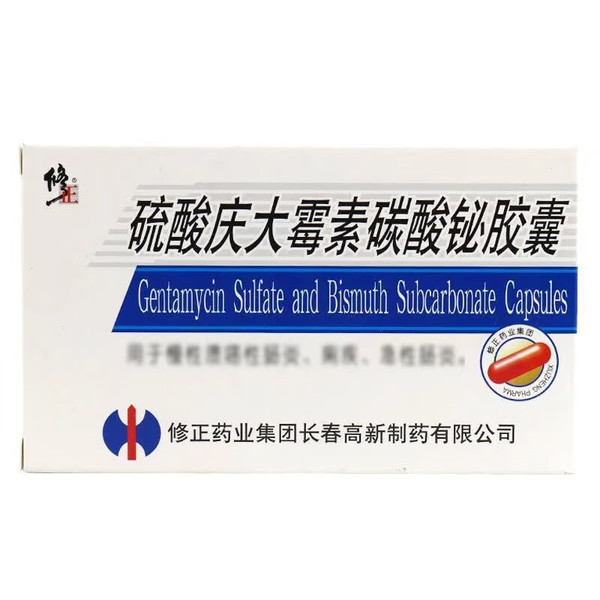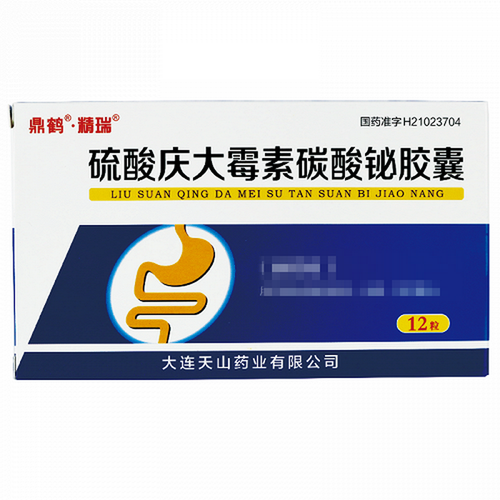Product Overview
[Drug Name]
Gentamycin Sulfate and Bismuth Carbonate Capsules
[English Name]
Gentamycin Sulfate and Bismuth Subcarbonate Capsules
[Approval Number]
National Medicine Standard No. H20050293
[Manufacturer]
Changchun High-Tech Pharmaceutical Co., Ltd., Xiuzhen Pharmaceutical Group
[Indications]
Indicated for chronic ulcerative enteritis, dysentery, and acute enteritis.
[Dosage and Administration]
Oral. Adults: 2-3 capsules three times a day; children: 1 capsule three times a day. For continuous use, a course of treatment should not exceed 10 days.
[Side Effects]
1. Rare gastrointestinal symptoms such as nausea, loss of appetite, vomiting, and abdominal distension, as well as rash and elevated serum aminotransferase levels, may occur.
2. Occasionally, hearing loss, tinnitus, or a feeling of fullness in the ears (ototoxicity), hematuria, significantly decreased urination frequency or urine volume, loss of appetite, extreme thirst (nephrotoxicity), unsteady gait, dizziness (ototoxicity, vestibular effects), dyspnea, drowsiness, and extreme weakness (neuromuscular blockade) may occur.
3. Long-term use of high doses may cause constipation, alkalemia, and malabsorption syndrome.
[Contraindications]
This product is contraindicated in patients with allergies to this product or other aminoglycoside antibiotics.
[Ingredients]
This product is a combination preparation containing 40 mg (40,000 units) of gentamicin sulfate (calculated as gentamicin) and 600 mg of bismuth subcarbonate per tablet.
[Properties]
This product is a white to slightly yellowish powder or granules.
[Precautions]
1. Use with caution in patients with dehydration, 8th cranial nerve damage, myasthenia gravis or Parkinson's disease, or renal impairment.
2. Patients allergic to other aminoglycoside antibiotics, such as streptomycin and amikacin, may also be allergic to this product.
3. Bacteria resistant to other aminoglycoside antibiotics, such as tobramycin and sisomicin, are also likely to be resistant to this product.
4. Patients with chronic intestinal infections who take this product long-term or in high doses should be aware of the possibility of nephrotoxicity or ototoxicity.
5. Regular urinalysis, renal function tests, and hearing tests or electroaudiography should be performed for patients taking this product long-term or in high doses.
6. Long-term use of this product may cause intestinal flora disturbances.
[Storage]
Sealed







